-
Address: 10655 FM 1097 Willis, TX 77318
-
Phone: (936) 465-9981
-
Email: service@tghinsurance.com

In this comprehensive guide, we’ll explore the importance of boat insurance for older boats and provide valuable insights to help you navigate the process of getting older boats insured in Texas.
As boats age, they require extra care and attention to keep them in top shape. One crucial aspect of maintaining and safeguarding your older boat is securing the right insurance coverage.
Whether you’re concerned about protecting your investment or mitigating risks, this blog post has got you covered.
Understanding Boat Insurance
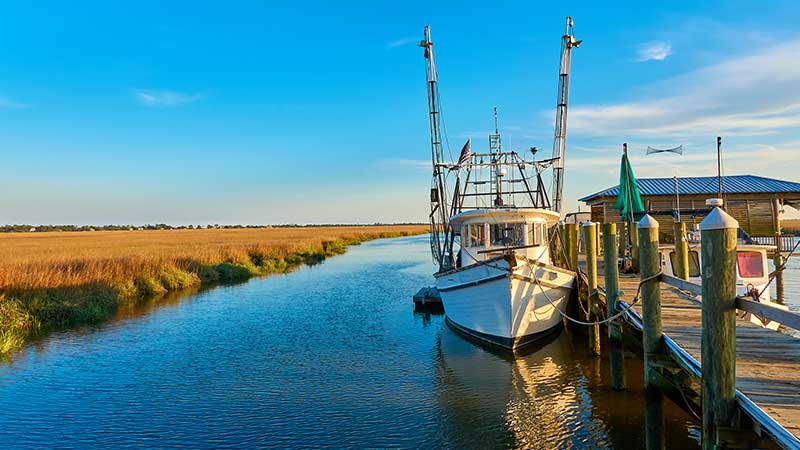
Boat insurance is a specialized form of coverage designed to protect boat owners from potential risks and damages.
Just like car insurance, boat coverage from a reputable insurance company provides financial protection against accidents, theft, vandalism, and liability claims.
For owners of older boats, especially classic boats, insurance coverage becomes even more critical due to the unique risks associated with aging vessels.
Types of Boat Insurance Policies
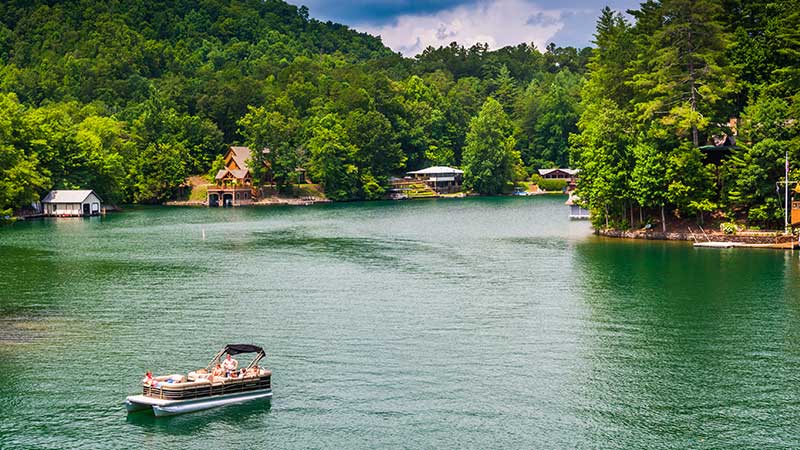
When it comes to insuring older boats, different policy options are available to suit various needs and budgets.
Actual Cash Value (ACV) Policies
ACV policies take into account the depreciated value of your boat.
In the event of a total loss, the insurance company pays you the current market value of the boat minus depreciation.
While this policy is more affordable, it may not cover the full replacement cost for older boats.
Agreed Value Policies
Agreed Value policies provide coverage based on insured value or an agreed-upon value between you and the insurer.
This type of policy guarantees a predetermined payout in case of a covered loss.
Agreed Value policies are often more suitable for older boats, as they offer greater financial protection.
Liability-only Policies
Liability-only policies provide coverage for damages caused to other boats or properties in case of an accident.
While these policies don’t cover damages to your own boat, they are a cost-effective option for boat owners who want to meet legal requirements without extensive coverage.
What Does Boat Insurance Cover?
Boat insurance provides coverage for a wide range of risks and liabilities associated with owning and operating a boat.
While specific coverage may vary depending on the insurance provider and policy, here are some common elements that boat insurance typically covers:
- Property Damage: Boat insurance typically includes coverage for physical damage to the boat itself. This coverage helps pay for repairs or replacement if your boat is damaged or destroyed due to accidents, collisions, fire, theft, vandalism, or natural disasters. It can cover the hull, equipment, machinery, and other permanently attached items on the boat.
- Liability Coverage: Liability coverage is an essential component of boat insurance. It protects you in case you cause bodily injury or property damage to someone else while operating your boat. This coverage helps pay for legal expenses, medical bills, property repairs, or settlements if you are held responsible for an accident or injury.
- Medical Payments: Boat insurance often includes coverage for medical expenses incurred by you or your passengers due to boating accidents or injuries. It can help cover hospital bills, doctor’s fees, and related medical expenses.
- Uninsured/Underinsured Boaters: This coverage protects you if you are involved in an accident with a boater who does not have insurance or has insufficient coverage to pay for the damages. It helps cover medical expenses, property damage, and other costs resulting from the accident.
- Personal Property: Boat insurance may provide coverage for personal belongings on the boat, such as fishing equipment, water sports gear, electronics, and personal effects. This coverage helps replace or repair these items if they are damaged, lost, or stolen while on board.
- Towing and Assistance: Boat insurance often includes coverage for emergency towing and assistance. If your boat becomes disabled or stranded on the water, this coverage can help cover the costs of towing, fuel delivery, on-water assistance, and similar services.
- Wreck Removal: In the event that your boat sinks or is severely damaged, boat insurance may cover the costs associated with removing the wreck from the water. Wreck removal coverage helps pay for salvage expenses, environmental cleanup, and related costs.
It’s important to note that the specific coverage and limits can vary between insurance providers and policies.
Some policies may offer additional optional coverage, such as coverage for fishing equipment, personal watercraft, or protection against pollution liability. Additionally, some insurers may offer discounts or incentives for safety features, completing boating safety courses, or bundling boat insurance with other policies.
When purchasing boat insurance, it’s essential to carefully review the terms and conditions of the policy, and understand the coverage limits, deductibles, and exclusions. Consider your specific needs, boating habits, and the value of your boat when selecting the appropriate coverage.
Consulting with an insurance professional who specializes in boat insurance can help you determine the right coverage options to protect your boat and provide peace of mind while on the water.
What is the difference between boat insurance and marine insurance?
Boat insurance provides coverage specifically for individual boats and personal watercraft, focusing on protecting the vessel itself and providing liability coverage.
Marine insurance, on the other hand, has a broader scope and covers a range of risks associated with commercial maritime operations, including vessels, cargo, liabilities, and other marine-related assets.
While boat insurance is typically geared towards personal use, marine insurance caters to commercial activities and offers more customization options.
Factors Affecting Insurance Premiums for Older Boats
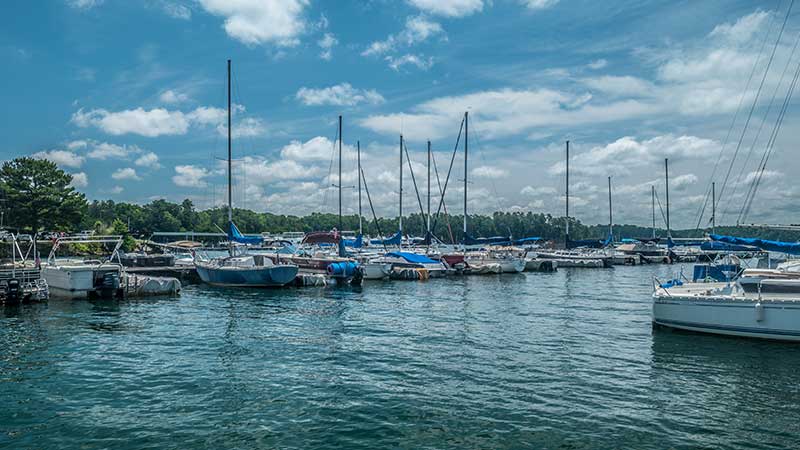
Several factors influence the cost of boat insurance premiums for older boats. Understanding these factors can help you make informed decisions and potentially reduce your insurance costs.
Age of the Boat
In boat insurance, the age of the boat significantly influences premiums.
Older boats, typically those over a certain age threshold, are generally associated with higher insurance premiums.
Why is that the case? Let’s delve into the reasons behind the impact of the boat’s age on insurance costs.
Increased Risk of Potential Issues
As boats age, they are more likely to experience mechanical failures, structural deterioration, and wear and tear.
Older boats may have outdated systems, aging components, or equipment that is more prone to malfunction.
These factors increase the risk of accidents or breakdowns, making insurers view older boats as higher-risk assets to insure.
Consequently, insurance companies adjust premiums to account for the potential claims and repairs associated with older boats.
Higher Repair Costs
Repairing an older boat can be more expensive compared to newer vessels.
Replacement parts for older models might be scarce or more challenging to obtain, resulting in increased costs.
Additionally, the expertise required to fix vintage or discontinued boat models can drive up repair expenses.
Insurance companies consider these higher repair costs when calculating premiums for older boats.
Depreciation
Like any other asset, boats depreciate over time.
The value of an older boat is lower than that of a new or recently manufactured vessel.
Insurance companies factor in the depreciated value of a boat when determining coverage limits and payout amounts in the event of a claim.
The lower value of an older boat influences the premium calculation since the insurer’s liability is reduced due to the diminished value of the insured asset.
Limited Availability of Replacement Parts
For older boats, finding specific replacement parts can be challenging, especially for models that are no longer in production.
This factor can cause delays and complications during repairs, increasing the time and cost involved in fixing the boat.
Insurance companies consider the potential difficulties in sourcing parts for older boats when assessing risk and setting premiums.
Historical Data and Claim Patterns
Insurance companies rely on historical data and claim patterns to assess risk and determine premiums.
If older boats of a particular make or model have a higher frequency of claims or a history of costly repairs, insurance providers may adjust premiums accordingly.
This data-driven approach helps insurance companies manage their risks and maintain financial stability.
Summary
Despite the higher premiums associated with insuring older boats, it’s important to note that adequate insurance coverage for your aging vessel is essential.
While the cost may be a concern, it is a worthwhile investment to protect your boat and mitigate potential financial burdens resulting from accidents, damages, or liability claims.
Additionally, by properly maintaining your older boat, documenting repairs and upgrades, and implementing safety measures, you may be able to demonstrate to insurance providers that your vessel is well-cared for, potentially resulting in more favorable premiums.
Condition and Maintenance
The condition and maintenance of an older boat play a significant role in determining insurance premiums.
Insurance providers take into account the overall condition and upkeep of the boat when assessing risk and calculating the cost of coverage.
Let’s explore how the condition and maintenance of an older boat can impact insurance premiums.
Reduced Risk of Potential Issues
Proper maintenance and regular inspections are vital for keeping an older boat in good condition.
When a boat is well-maintained, the risk of mechanical failures, structural problems, and other issues is significantly reduced.
Insurance companies recognize that boats in good condition are less likely to experience accidents or breakdowns, leading to fewer claims.
As a result, they may offer lower insurance premiums to boat owners who can demonstrate a track record of proper maintenance and upkeep.
Increased Reliability and Safety
A well-maintained older boat is generally safer to operate on the water.
By following manufacturer-recommended maintenance schedules, addressing repairs promptly, and ensuring that safety features are functioning correctly, boat owners can minimize the risk of accidents and related insurance claims.
Insurance providers consider the safety features and overall reliability of the boat when determining premiums.
Boats with a strong maintenance history and robust safety measures in place may qualify for lower insurance rates.
Documentation of Service Records
Keeping detailed service records for your older boat is crucial.
Service records provide a clear picture of the maintenance and repairs performed on the vessel over time.
When requesting insurance quotes or submitting documentation to insurers, these service records serve as evidence of the boat’s maintenance history and its current condition.
Insurers view well-documented service records as a positive sign that the owner has taken care of the boat, which can result in more favorable premiums.
Impact on Resale Value
Regular maintenance and proper care can help preserve the value of an older boat.
Insurance providers recognize that a well-maintained boat holds its value better and is less likely to suffer from significant depreciation.
This consideration may influence the insurance premium calculation, as the insurer has a vested interest in protecting the value of the insured asset.
By investing in maintenance and demonstrating a commitment to preserving the boat’s condition, owners may be eligible for lower premiums.
Discounts and Incentives
Insurance companies often provide discounts or incentives for boat owners who maintain their vessels properly.
These discounts may vary between insurers but can include benefits for safety features, such as fire extinguishers, life jackets, and navigational aids.
Some insurers may also offer discounts for completing boating safety courses or having the boat inspected by a certified marine surveyor.
Taking advantage of these opportunities can contribute to reducing insurance premiums for older boats.
When seeking insurance coverage for an older boat, it’s essential to emphasize its good condition and maintenance history.
By providing detailed documentation of service records, demonstrating compliance with recommended maintenance schedules, and highlighting any upgrades or improvements made to the boat, you can present a compelling case to insurers and potentially secure lower insurance premiums.
Remember, regular maintenance and inspections not only benefit your insurance premiums but also ensure the safety and longevity of your boat.
By prioritizing maintenance and investing in the proper care of your older vessel, you not only increase its value but also enhance your overall boating experience.
Type and Usage
When it comes to boat insurance, the type of boat and its intended usage are crucial factors that insurance companies consider when determining premiums.
Different types of boats and their specific uses pose varying levels of risk, which in turn affects insurance rates.
Let’s explore how the type and usage of a boat can impact insurance premiums.
Boat Size
The size of the boat is an important consideration for insurance companies.
Larger boats generally have higher insurance premiums due to their higher value and the potential for more significant damages in the event of an accident.
The size of the boat also affects its stability and handling characteristics, which can impact the risk of accidents.
Smaller boats, on the other hand, may be associated with lower insurance premiums as they are typically less expensive to repair or replace.
Horsepower
The horsepower of the boat’s engine is another factor that influences insurance rates.
Boats with higher horsepower engines are generally faster and may be more prone to accidents or incidents on the water.
Insurers take into account the increased risk associated with higher-powered boats when calculating premiums.
Consequently, boats with lower horsepower engines may have lower insurance premiums due to their perceived lower risk.
Navigational Areas
The intended usage and navigational areas of a boat can also impact insurance premiums.
Some boats are designed for specific types of water bodies, such as inland waters, coastal areas, or offshore use.
Insurance providers consider the navigational areas in which the boat will be operated.
For example, navigating in rougher waters or areas prone to storms or hurricanes may increase the risk profile and result in higher premiums.
Boats used exclusively on inland lakes or calm waters may be associated with lower insurance premiums.
Commercial vs. Personal Use
The purpose of the boat, whether it is used for commercial or personal use, can also affect insurance rates.
Commercial boats, such as charter boats or those used for commercial fishing or water sports activities, often carry higher insurance premiums due to the increased liability exposure.
Insurance providers assess the risks associated with the specific commercial operations and the potential for third-party claims when determining premiums.
Specialized Boats
Certain types of boats, such as high-performance boats, sailboats, or houseboats, may have unique insurance requirements and risk profiles.
High-performance boats, for example, may require additional coverage due to their speed capabilities and increased risk of accidents.
Sailboats may have specific coverage needs related to rigging, sails, or equipment.
Summary
Insurance providers take into account the specialized characteristics and usage of these boats when calculating premiums.
It’s important to provide accurate information about the type of boat and its intended usage when seeking insurance coverage. Be prepared to answer questions about the boat’s size, engine horsepower, and the locations where you plan to operate it.
Providing precise details ensures that you receive the appropriate coverage and that your insurance premiums are accurately calculated.
Additionally, it’s worth noting that some insurance providers offer specialized boat coverage with options tailored to specific types of boats or usage scenarios. These specialized policies may provide additional benefits or coverage enhancements that cater to the unique needs of the boat.
Consulting with insurance professionals who understand the intricacies of different boat types and usages can help you find the most suitable coverage at competitive rates.
Geographic Location
The geographic location where a boat is primarily kept and operated is a significant factor in determining insurance premiums.
Insurance companies assess the risk associated with specific regions, taking into account factors such as regional weather patterns, susceptibility to storms and hurricanes, and local crime rates.
Let’s explore how the geographic location of a boat can impact insurance premiums.
Storm and Hurricane Prone Areas
Boats located in regions prone to storms, hurricanes, or other severe weather conditions face a higher risk of damage.
Insurance providers consider the likelihood of weather-related incidents, such as high winds, heavy rainfall, or storm surges, when calculating premiums.
Areas along coastlines or in regions known for frequent tropical storms or hurricanes may have higher insurance premiums due to the increased risk of potential claims for boat damage or loss.
Theft and Vandalism Rates
Local crime rates and the prevalence of boat theft and vandalism in a particular area can impact insurance premiums.
Boats located in regions with higher rates of theft or vandalism are more likely to incur losses, leading to increased insurance costs.
Insurance companies take into account the historical data and crime rates of specific locations to determine the risk of theft or malicious damage to boats.
Owners of boats kept in areas with lower crime rates may enjoy more affordable insurance premiums.
Waterway Characteristics
The characteristics of the waterways in a particular region can also influence insurance rates.
Certain areas may have challenging navigational conditions, such as narrow channels, strong currents, or high traffic density, increasing the risk of accidents or collisions.
Insurance providers consider these factors when assessing the risk profile of boats operating in those waterways.
Boats operating in safer, less congested waterways may be associated with lower insurance premiums compared to those operating in more challenging or crowded areas.
Availability of Repair Facilities
The availability of qualified repair facilities in a geographic area can impact insurance premiums.
In areas with limited access to repair services or specialized boatyards, the cost of repairs or parts replacement may be higher.
Insurance companies consider these factors as they influence the potential expenses associated with boat repairs.
Boats located in regions with well-established and accessible repair facilities may have more competitive insurance rates.
Local Regulations and Requirements
Different regions may have specific insurance regulations and requirements for boats.
For example, certain areas may mandate additional coverage options, such as full liability insurance or coverage for pollution or environmental damage.
Insurance providers consider these local regulations when determining the coverage options and associated premiums for boats in those areas.
When seeking insurance coverage for your boat, it’s important to provide accurate information about the geographic location where the boat will be primarily kept and operated.
This allows insurance providers to assess the risk factors associated with that location and provide appropriate coverage options and premiums.
Summary
It’s worth noting that while insurance premiums may be higher in certain geographic areas, adequate insurance coverage is essential to protect your boat from potential risks and liabilities.
By selecting coverage that aligns with the specific risks of your location and maintaining proper security measures, such as boat alarms or GPS tracking systems, you can mitigate some of the risks and potentially qualify for discounts or reduced premiums.
Consulting with insurance professionals who have expertise in your specific geographic area can provide valuable insights into the regional risk factors and coverage options available.
By understanding the impact of your boat’s location on insurance premiums, you can make informed decisions to safeguard your investment and enjoy worry-free boating experiences.
Tips for Finding Affordable Boat Insurance for Older Boats
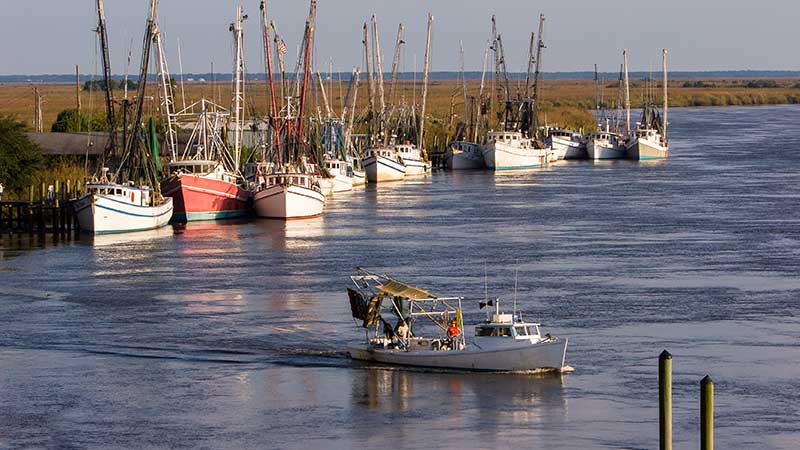
Securing affordable insurance coverage for your older boat is possible with these practical tips:
Research Insurance Providers
Look for insurance companies that specialize in insuring older boats. They understand the unique needs and challenges associated with aging vessels.
Compare Quotes and Coverage Options
Obtain quotes from multiple insurance providers to compare rates and coverage options. Be sure to assess the terms and conditions of each policy to ensure they meet your specific requirements.
Evaluate Deductibles and Coverage Limits
Consider your budget and risk tolerance when selecting deductibles and coverage limits.
A higher deductible may lower your premium but also means you’ll have to pay more out of pocket in the event of a claim.
Assess your boat’s value and determine the appropriate coverage limits to strike a balance between affordability and adequate protection.
Consider Bundling Options or Loyalty Discounts
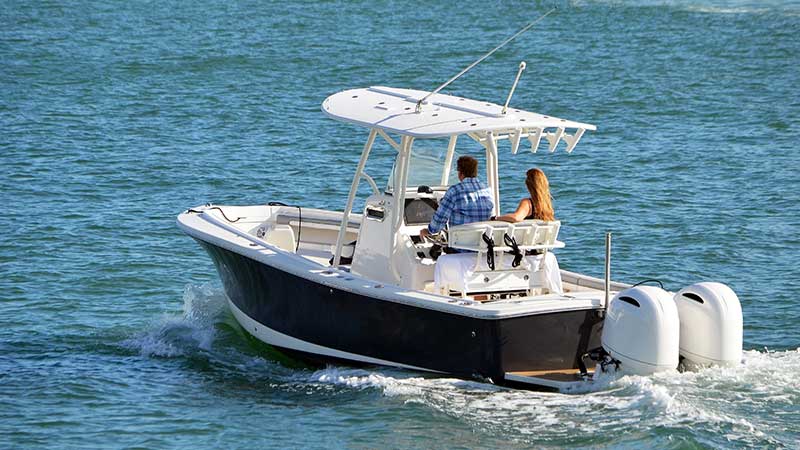
If you have other insurance policies, such as auto or home insurance, check if bundling them with your boat insurance can lead to discounts. Additionally, inquire about loyalty discounts for long-term policyholders.
Important Coverage Considerations for Older Boats
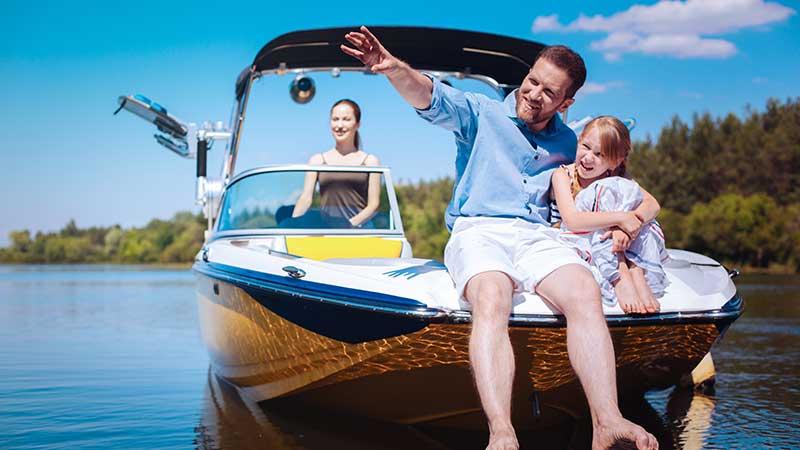
Hull Coverage for Physical Damages
When you insure your older boat, prioritize certain coverage options to ensure comprehensive protection:
This coverage reimburses repair or replacement costs for damages caused by accidents, storms, or other covered perils. Opt for a policy that covers the agreed or appraised value of your boat to ensure adequate compensation.
Protection Against Liability Claims
Liability coverage safeguards you against legal and medical payments and financial obligations arising from accidents where you are at fault. Ensure your policy includes sufficient liability coverage limits to protect your assets in case of a lawsuit.
Coverage for Salvage and Wreck Removal
In the unfortunate event of a total loss, salvage and wreck removal costs can be substantial. Confirm with your insurance company that your policy includes coverage for these expenses to avoid unexpected financial burdens.
Supplementary Coverage for Additional Risks
Depending on your boat’s location and the specific risks it may face, consider additional coverage options. For example, if you live in a hurricane-prone area, adding coverage for hurricane-related damages can provide invaluable peace of mind.
Maintaining and Insuring Older Boats
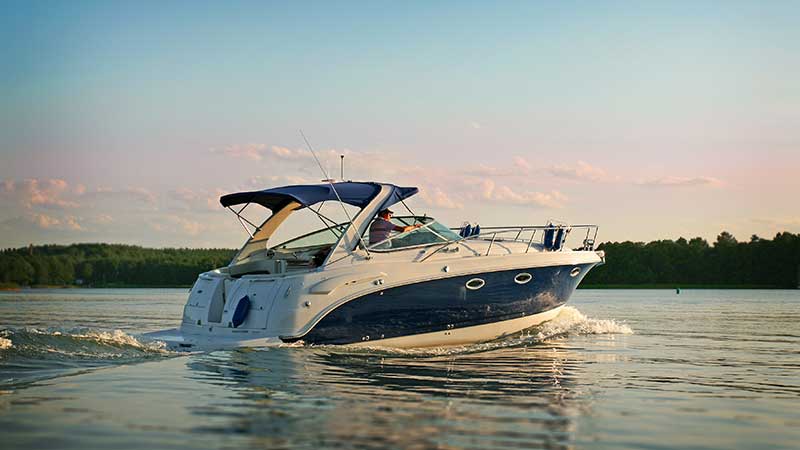
To ensure the best insurance coverage for your older boat or classic boat, it’s essential to prioritize proper maintenance and documentation:
Regular Maintenance and Inspections
Stay on top of maintenance tasks, including routine inspections, engine servicing, and addressing any issues promptly. A well-maintained boat is not only safer but also more likely to qualify for better insurance rates.
Documenting Repairs, Upgrades, and Improvements
Keep detailed records of all repairs, upgrades, and improvements made to your boat. This documentation can help demonstrate the boat’s improved condition and potentially lead to lower insurance premiums.
Impact of Boat Modifications on Insurance Coverage
Before making any significant modifications to your older boat, consult with your insurance provider. Certain modifications may impact your coverage or require policy adjustments.
Potential Discounts for Safety Features and Anti-Theft Devices
Installing safety features such as fire extinguishers, smoke detectors, and anti-theft devices like alarms or GPS tracking systems may qualify you for insurance discounts. Inquire with your insurer about available discounts for these enhancements.
Frequently Asked Questions about Boat Insurance for Older Boats
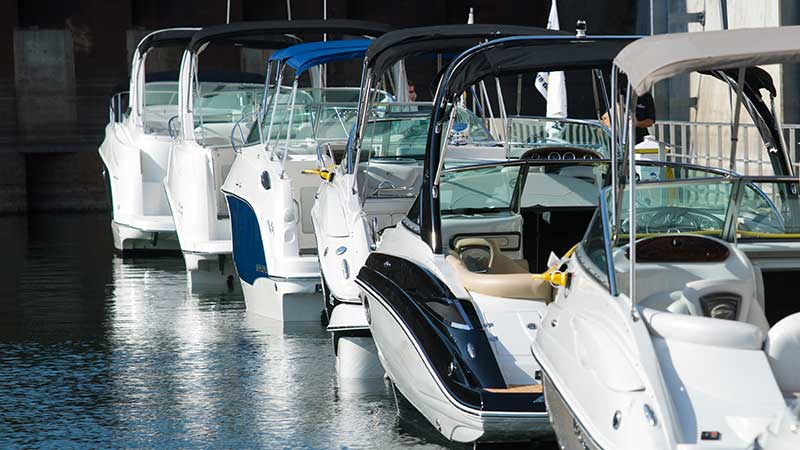
Can I insure a boat that is more than 20 years old? Yes, many insurance companies provide coverage for boats of various ages, including those older than 20 years. However, the availability of coverage and the policy options may vary among insurers.
What coverage options are available for older boats?
You can insure older boats with options like Actual Cash Value (ACV) policies, Agreed Value policies, or liability-only policies. Assess your boat’s value, your budget, and the level of coverage you need to select the most suitable policy.
How can I find the right insurance provider for my older boat?
Research insurance companies specializing in boat insurance and inquire about their experience in insuring older boats. Request quotes from multiple providers and carefully review their coverage options, customer reviews, and reputation in the industry.
Can I make changes to my insurance policy as my boat ages?
Yes, you can make changes to your insurance policy as your boat ages.
Whether you need to adjust coverage limits, add endorsements, or explore new policies, contact your insurance provider to discuss the possible options.
As your boat ages, your insurance needs may change, so it’s essential to regularly review your policy and make necessary updates.
Conclusion
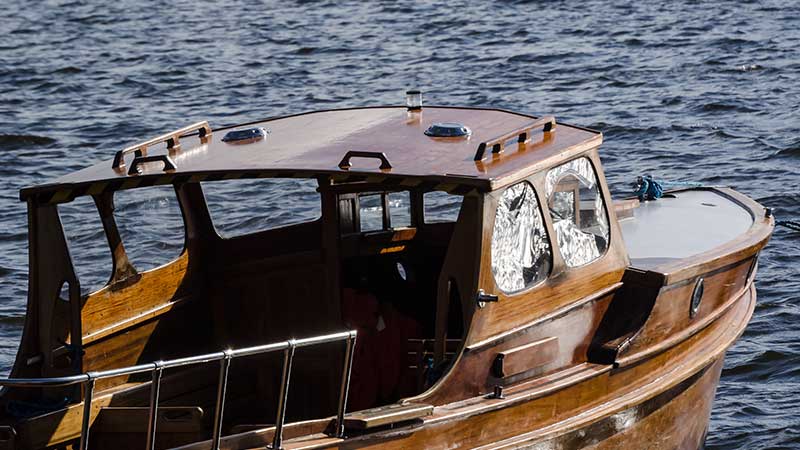
Boat insurance for older boats is a crucial investment that protects both your vessel and your financial well-being.
Understanding the risks associated with older boats and selecting the right insurance policy can provide peace of mind while enjoying your time on the water.
Remember to consider factors such as age, condition, usage, and location when determining the appropriate coverage and premiums.
Follow these tips and maintain your boat for affordable insurance coverage, protecting it from potential risks.
So, don’t delay—secure the protection your boat deserves and embark on worry-free adventures on the open seas.
Research, compare quotes, and consult professionals to make an informed decision, as insurance companies vary in policies and offerings.
With the right boat insurance, you can confidently navigate the waters, assured that your older boat receives comprehensive protection.
